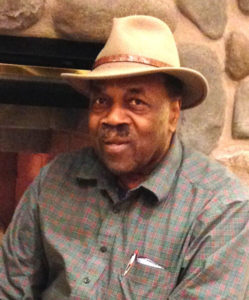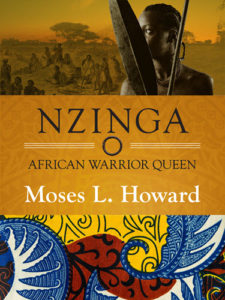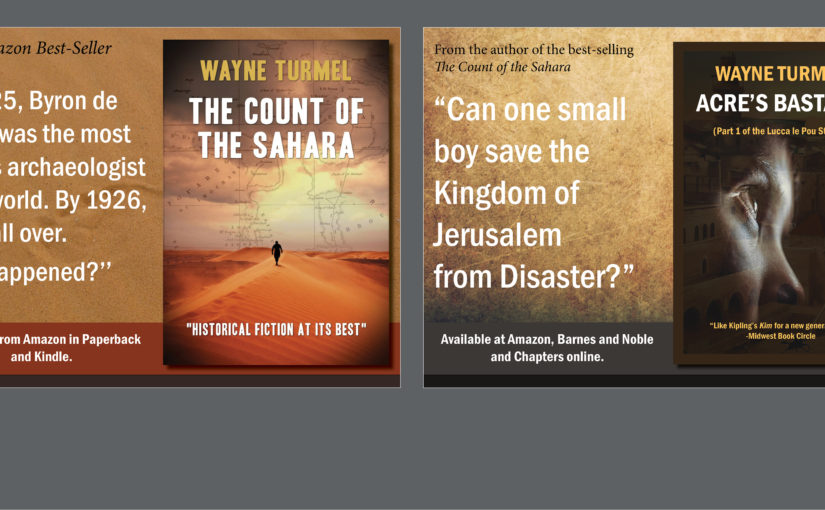I will be the first to admit that when I think of “African history” my mind immediately goes to Victorian Englishmen in pith helmets. That, of course, is both wrong and stupid, but so much of real African history is only found in oral tradition. So I was absolutely delighted to stumble across a novel called “Nzinga- African Warrior Queen,” by Moses Howard. It’s a great read about a young woman in what’s now Angola, and her fight for her people and culture against the Portuguese in the early days of European exploration. It neatly fits two of the important tenets of this blog: 1) It’s hard to be a badass woman in a corset and 2) Swords are cooler than guns.
When I read about his own personal journey to writing the story I knew I needed to learn more.
What’s the Moses Howard story?

I started out on a farm in Mississippi. With a biology degree in hand, I was in the first wave of the Teacher Education for East Africa project out of Columbia University in the 1960s, where I spent ten years training medical technologists and teachers in Uganda. Back in the States, I’ve been a biology teacher, assistant high school principal, community college dean, and counselor/mentor for students at risk. I began writing children’s chapter books while in Africa, and have been writing fiction for children and adults ever since.
What’s “Nzinga” about?
“Nzinga” is really about a child who at an early age learns to decipher her environment, understanding what she needs to survive. She treats her father, the king of Ndongo, as a beacon of light that she follows to know how to be in the world. As an adult, Nzinga masters the elements of her society and the ways of her enemies—and uses her enemies’ ways against them. She uses their animals, guns, language, and especially religion. But she achieves what she does through empathy and understanding.
 What is it about that time period and character that appealed to you most?
What is it about that time period and character that appealed to you most?
I had a whole different idea about Africa until I learned about Nzinga. I had the idea that old-time African “chiefs” thought of Europeans as gods, that they’d fight for a little bit, then capitulate and become corrupted, selling their people as slaves. But that all came from a European outlook, with no understanding that tribes were as different from each other as French or Germans in language and culture. Competing tribes went to war with each other and sold their enemies defeated in war—the same as Europeans and Mediterranean cultures had done for centuries.
Nzinga’s story is attractive because she faced and overcame such overwhelming odds. It was unheard of for a woman in her culture to do what she did, with only her father as a model for leadership. She had a quick mind and mastered languages and advanced an enormous sense of justice. I felt compelled to learn how Nzinga did what she did, which took years of research.
What’s your favorite scene in the book?
My favorite scene is the one where Nzinga is in the greatest danger—when she goes to observe slaves being loaded on the ship. She witnesses scenes of horror, and I felt immense fear for her while writing it, because she could have been taken away as a slave. I carry a strong sense of that horror, of course. When I was a teacher in Uganda, I was walking with my students, and we passed some old women who were disturbed that I couldn’t speak with them (I wasn’t rude; I didn’t know the language). My students told them I came from the people who’d been captured and taken to America. One woman walked around me, examining me, and said, “I know this is true, because there’s a tree in my village where they used to tie them up, the people who were sold as slaves.”
We went to the woman’s village, and she showed us the tree. All that remained were flakes of rust issuing from a hole in the tree, which of course had grown in the hundreds of years since then. But I turned my back to the tree, and put up my hands to see how it would be—would I fit?—to be chained to that tree. The feel of that tree, and the old women’s words, have stayed with me for more than fifty years. (Editor’s note, if you read the book you have to read the epilogue where Dr Howard relates this story. It gave me chills- and you know what an unemotional grump I can be.)
How can we learn more about Nzinga and your other books?
The best place to find what’s new with me is on Facebook (@MosesLHoward).
You can find all my books at amazon.com/author/moseshoward
We have extra essays and insights on my website at jugumpress.com/moseshoward
Thank you for this opportunity to talk about Nzinga!
